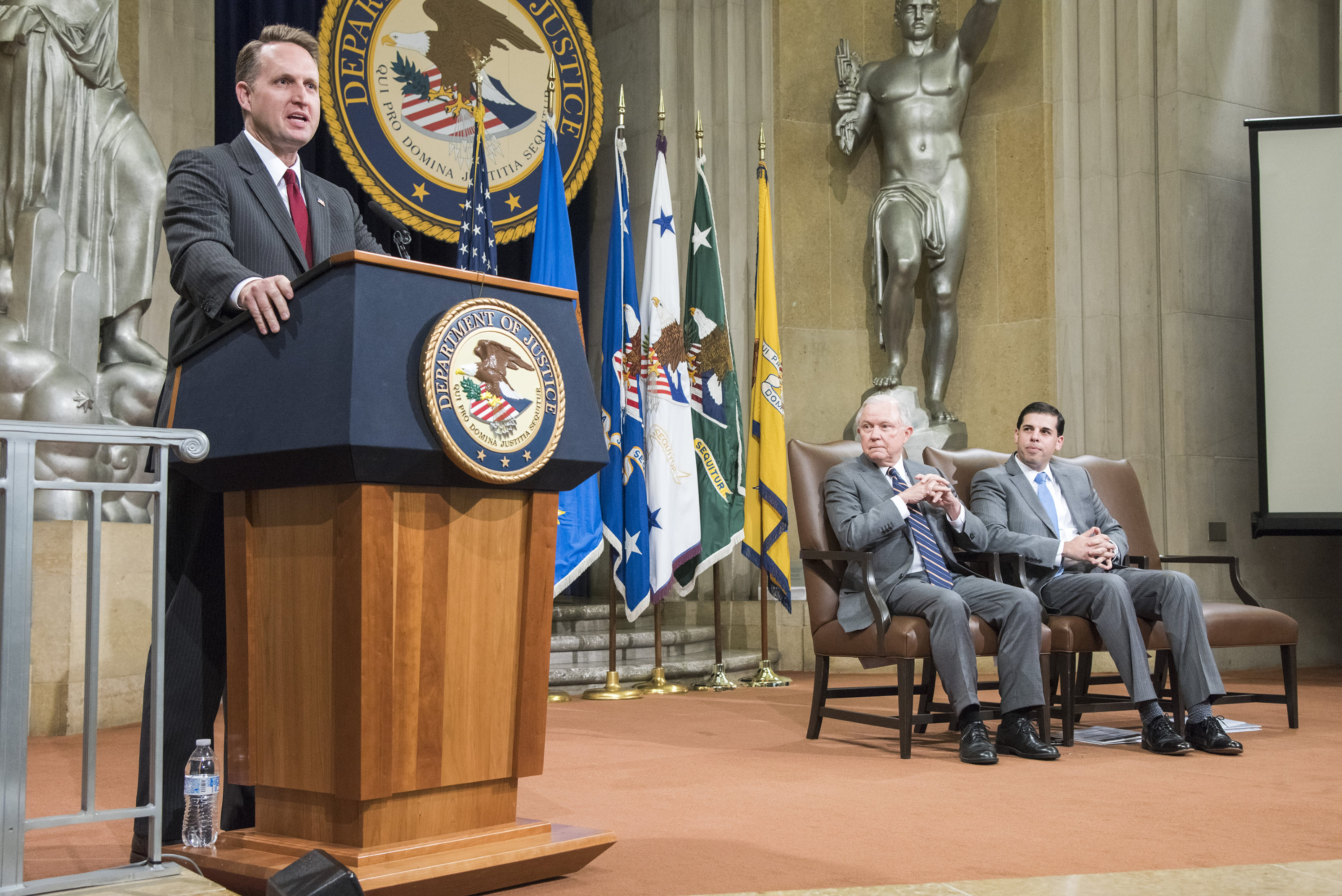
Former Top Civil Rights Official John Gore Made Misleading Statements in Declaration to Federal Court
Gore made clear misrepresentations — and perhaps outright lied — about his communications with a Chicago Republican Party official.

Former Justice Department official John Gore is already a subject of a sanctions motion for allegedly making misleading statements to Congress and concealing information in litigation over the census citizenship question. Now, emails obtained by American Oversight show that Gore made clear misrepresentations — and perhaps outright lied — about his communications with a Chicago Republican Party official.
Earlier this year, the Brennan Center and Protect Democracy uncovered emails from May through June of 2017 that Gore had sent from a personal account to Chris Cleveland. In April, a federal judge said that, because Gore had used personal email to discuss official business and had failed to preserve the emails in the manner required by the Federal Records Act, the Justice Department was required to search his personal email for records responsive to the Brennan Center and Protect Democracy’s FOIA requests.
To avoid this, Gore signed a declaration, under penalty of perjury, asserting that his communications with Cleveland were not, in fact, about official Justice Department business and that he knew Cleveland from outside of his work. Through a FOIA request of our own, we obtained this signed declaration, which hadn’t been publicly available — as well as additional emails Gore had exchanged with Justice Department officials that call into doubt the veracity of Gore’s declaration.
The summer 2017 emails Gore sent from his personal account to Cleveland concerned an alleged 16,000 vote discrepancy in Chicago during the 2016 election. Cleveland had taken the issue up with Gore, who was then a senior official overseeing the voting rights section of the Justice Department, and Gore then forwarded the exchange to Christy McCormick, a recently appointed member of President Donald Trump’s now-disbanded voter fraud commission, the Presidential Advisory Commission on Election Integrity (PACEI). In his sworn declaration, Gore claimed that those communications had been “outside my work for the [Civil Rights] Division” and were “in my personal capacity, not my official capacity.”
But the additional Justice Department emails American Oversight obtained are from months earlier, and show that Gore’s superior, Tom Wheeler, had directed Gore to look into Cleveland’s concerns about the alleged vote discrepancy in March. Wheeler, then the acting assistant attorney general for civil rights, even noted that the issue “fall[s] within [the DOJ Civil Rights Division’s] voting section” and that Gore “oversees voting.”
Gore responded that he would figure out which component of the Justice Department should handle Cleveland’s concerns, and noted that he had just spoken with Cleveland and communicated with Justice and White House officials about the issue.
These emails show that Gore plainly had communicated with Cleveland in his official capacity prior to the summer 2017 emails that were the subject of his declaration. His claim that he only knew Cleveland from “outside” his official work is misleading at best, and at worst a deliberate falsehood.
Additionally, Gore’s claim that his personal email communications with Cleveland and the PACEI member were in his “personal capacity” defies common sense and is directly contradicted by the documents the Justice Department has produced. Gore’s personal email communications with Cleveland from that summer concerned exactly the same issue — an alleged vote discrepancy in Chicago — as his March 2017 official-capacity communications with and about Cleveland.
It is hard to imagine how Gore could reasonably assert that he could have any “personal capacity” communications about alleged voting irregularities while he was overseeing the Voting Section of the Justice Department’s Civil Rights Division. And it is hard to believe that Gore would truly consider work that his superior directed him to undertake not to be “an official-capacity communication,” as he stated in his sworn declaration. Indeed, PACEI member McCormick, with whom Gore had also communicated about Cleveland’s concerns, had even responded, “[h]opefully between DOJ and the Commission we can clean up the voter rolls,” acknowledging the connection between Gore’s official work and PACEI, as well as the Justice Department’s role in voting issues.
On Thursday, Senators Sheldon Whitehouse and Patrick Leahy requested that the Justice Department’s Office of Professional Responsibility investigate Gore based on the documents American Oversight, Protect Democracy and the Brennan Center had obtained. “Mr. Gore’s credibility is already under scrutiny in litigation regarding the addition of a question about citizenship to the Census,” the senators wrote. “This new evidence suggests a pattern of possible misconduct that should be thoroughly and promptly investigated.”
Both American Oversight’s lawsuit seeking Gore’s external communications and the Brennan Center and Protect Democracy’s lawsuit for records related to Gore’s voting-related work are ongoing. We’re also challenging the Justice Department’s improper decision to redact the names of White House officials included on the emails from March 2017.